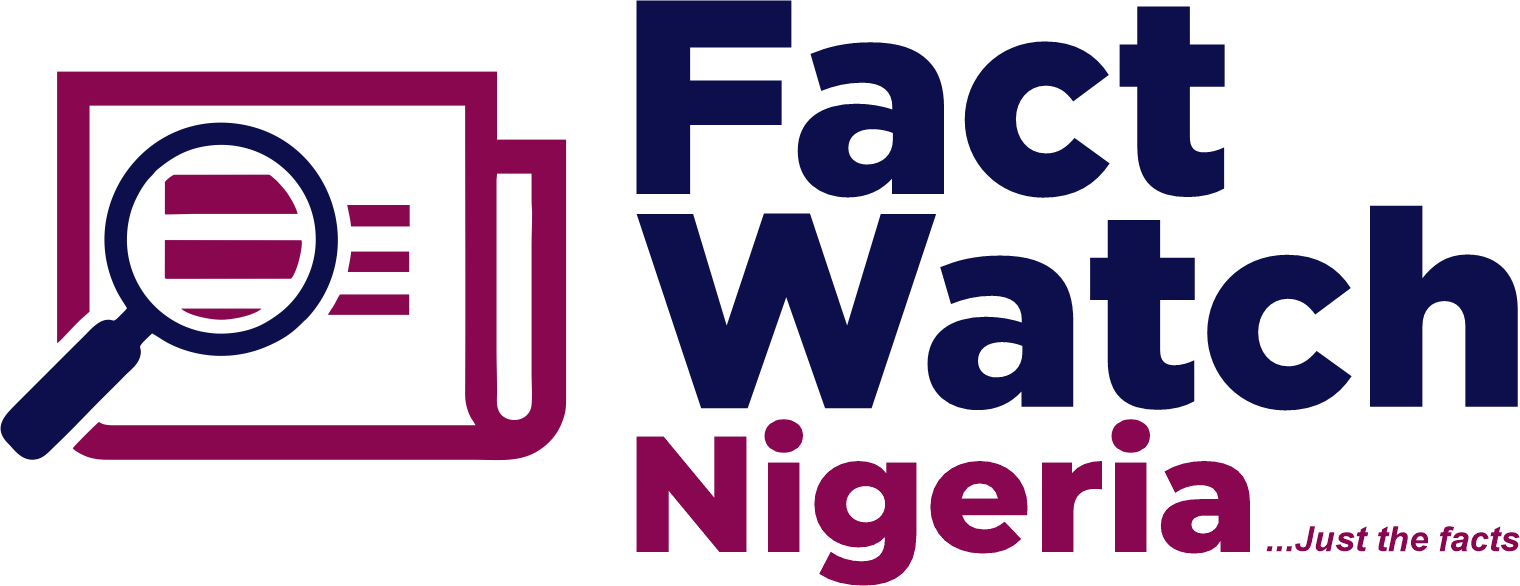By Pascal Ibe
On Sunday morning when President Bola Tinubu addressed Nigerians over lingering hardship protest, the Nigeria leader made many claims to note his achievements in the last fourteen months in office.
Since 1st August, Nigerians have taken to the streets and roads to protest bad governance and hardship.
In order to get Nigerians off the street, the president spoke in a nationwide broadcast on Sunday, when he urged the defiant protesters to leave the streets and embrace dialogue.
Despite the plea, protests have continued till this moment.
However, in the full text by president Tinubu on Sunday, FactWatch cited paragraph 12 and decided to run a fact check on that.
In paragraph 12 of that speech, president Tinubu claimed that in the last 13 month of his administration, the country’s revenue on debt service dropped from 97% to 68%.

Minister Of Economy Made Same Claim Last Month
In July, Wale Edun, the Minister of Finance said Nigeria’s revenue to debt service ratio has declined from 97% in 2023 to 68% in 2024, indicating a reduction in the debt burden of the government.
The Minister said the country’s revenue is now being managed in such a way that promotes transparency, accountability and visibility of government spending.
How true Is This Claim?
According to the latest quarterly statistical bulletin from the Central Bank of Nigeria (CBN), Debt service costs consumed about 74% of the federal government’s retained revenue in the first quarter of 2024.
Data published by Nairametrics showed that In Q1 2024, the federal government had a retained revenue of N1.76 trillion.
However, in the same period, debt servicing gulped N1.31 trillion, which is about 74% of the government revenue.
This figure highlights the continuing financial strain on the government’s resources as it grapples with significant debt obligations.
Also an analysis by BusinessDay showed that in July, Nigeria’s debt service-to-revenue stood at 74.3 percent in the first quarter (Q1) of 2024.
Expert say the decrease was driven by naira devaluation/ exchange rate gains and partial petrol subsidy removal.
Data from the latest quarterly statistical bulletin of the Central Bank of Nigeria (CBN) shows that the debt service-to revenue in Africa’s most populous nation stood at 74.3 percent (N1.31 trillion) of total retained revenue of N1.76 trillion in the Q1 of 2024, lower than 149.5 percent (N1.97 trillion) in the same period of 2023.
In the first quarter of 2022, 2021, 2020, and 2019, the country’s debt service-to-revenue ratios to revenues were 120.5 percent, 123.2 percent, 96.7 percent, and 65.8 percent respectively.
The 97% Claim
President Tinubu in his broadcast, also claimed that before his administration, the nation spent 97 per cent of its revenue on debt service.
Checks indicated that in 2023, debt servicing in Nigeria gulped 64.5 percent of the Federal Government’s total revenue, according to analysis of data from the Budget Office.
Data showed that last year’s figure is higher than the 48.5 percent of total revenue that debt service gulped in 2022, and lower than the 71.8 percent of total revenue used to service debt in 2021.
Further analysis of the data shows that the actual debt service cost was N7.66 trillion in 2023, a 16.9 percent rise from the projected N6.56 trillion. In 2022, actual debt service cost rose marginally to N3.76 trillion from the budget amount of N3.69 trillion.
Actual revenue was N11.88 trillion from projected revenue of N11.05 trillion. In 2022, the Federal Government of Nigeria received a lower actual revenue of N7.76 trillion from a projected revenue of N9.97 trillion.
A report by Budgit in 2020, stated that Nigeria spent 97% of revenue on debt servicing.
According to BudgIT, a civic-tech non-profit organisation, of the N3.42 trillion generated as revenue, Nigeria expended N3.34 trillion on debt servicing.
The report said total expenditure stood at N10.01 trillion.
“This means nearly all FG’s salaries, overhead & CAPEX (Capital Expenditure) were financed with loans & CBN support,” the civic group said.
A data research organization, Afriinvest in its recent executive summary titled; Fiscal Policy Review & Outlook: Overly Optimistic 2024 Budget Targets Dim Performance Expectations, revealed that its assessment of the 2023 actual budget (including supplementary provisions) points to sustained underperformance quoted in ambitious projections.

According to Afriinvest, data from the budget office revealed that the burgeoning cost of governance vis-à-vis the snail-paced growth in revenue accretion has further put Nigeria on the cusp of fiscal crisis. For context, although actual revenue outpaced the budgeted by 7.6% to ₦11.9tn on the support of firmer oil & other minerals and non-oil tax revenue, aggregate expenditure accentuated to ₦18.8tn (up, 31.8% y/y) due to increase across all cost elements. On the back of the heightened cost levels, the actual deficit tracked higher by 26.6% y/y to ₦6.9tn, plugged by domestic (including Ways & Means) and external borrowing.
Verdict
The claim by president Bola Tinubu is False.
Data findings and analysis showed that in the last 13 months, Nigeria’s revenue to debt service hasn’t reduced to 68% as claimed by president Tinubu during broadcast on Sunday.






